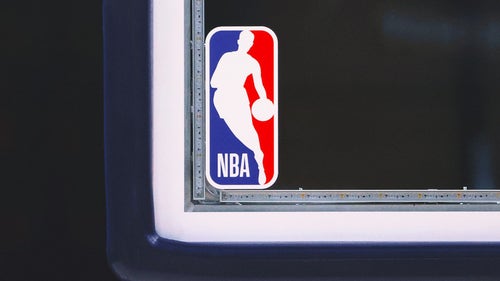
Speaking Out: The Thorny Issue Of NBA Stars Criticizing Through The Media
Recent headlines have been dominated by NBA stars criticizing their organizations through the media. Do these tirades help or hurt?
The NBA headlines have been dominated recently by a common theme. Star players, frustrated with the pain of losing basketball games, are speaking out through the media. They call out teammates, coaches, fans and management in an attempt to effect change and set their team back on the winning path.
The question has to be asked: Does this work? Do players respond to criticism leveled in the media? How can stars bend the will of coaches and management when complaining and threatening through the media?
The Cleveland Cavaliers were privy to a familiar refrain when LeBron James vented his frustration following a 124-122 loss to a New Orleans Pelicans team playing without All-Star Anthony Davis. The reigning Finals MVP called out his front office after the game in a lengthy, profanity-filled tirade. His key point centered around the team being top-heavy, without the depth or secondary playmakers they needed to succeed.
The outburst triggered action from Cleveland, including a number of sitdowns and the inevitable comments at press conferences. Head coach Tyronn Lue expressed his frustration with James’ outburst, saying “Yeah it makes it tough, and I hate it.”
Big man Tristan Thompson also weighed in, saying “You can’t go out there hoping somebody is coming to walk through that door. Play with whoever the hell we got right now, and let’s win some [expletive] games.”
This isn’t a new move for James, as he responded to his front office’s recent trade to add Kyle Korver by commenting they now needed a point guard. Each of his two previous seasons with Cleveland, James has called for the front office to make changes. Because they are dealing with the world’s best player — who delivered with a title — they have acted both times.
The Chicago Bulls have been an open book recently, and not for positive reasons. Jimmy Butler and Dwyane Wade spoke out to the media following a 119-114 loss to the Atlanta Hawks. Rather than turn their ire on the front office, the veterans instead focused on the team’s younger players.
Butler was quick to chime in, agreeing with Wade’s comments about the team’s lack of emotional distress at the loss. “If you don’t come in mother f****** pissed off every game, any game. If you’re not pissed off that you lost, something is wrong. This is your job. This is what you’re supposed to love to do.”
Wade wasn’t finished, either:
In Cleveland, James’ comments sparked open discussion between the front office and the former MVP. Although many in the media rolled their eyes at James repeating his annual vocal criticisms, the Cavaliers organization seems to accept James’ voice in whatever medium it speaks through. Perhaps his level of play has earned that.
Around the league, that has not been the case. Jabari Parker spoke up after a recent Milwaukee skid, giving details about his role is a recent locker room discussion. The team responded by sitting Parker for the following game, a punishment set by his fellow teammates.
Parker wasn’t even truly criticizing anyone, but what he did was open up the “closed door” that these discussions are supposed to stay behind. A rule that is spoken or unspoken, it seems to be consistently held around the league – except when stars decide to break it.
In Chicago, the comments of Wade and Butler sparked even more significant shockwaves. Point guard Rajon Rondo, seeing inconsistent playing time as Bulls coach Fred Hoiberg seeks a working rotation, fired back at his two “star” teammates.
Taking to social media, Rondo posted a picture of Kevin Garnett and Paul Pierce from his time on the Boston Celtics. “My vets would never go to the media,” his post began, and he spent a paragraph describing how former teammates showed their leadership through their work ethic and not through media complaints. After defending the team’s young players, he ended with, “If anything is questionable, it’s the leadership.”
Other players on the team also spoke up, declaring they wanted more from Wade and Butler in practice. Taj Gibson said that they saw some action when Wade practiced fully on Saturday.
The battle of words in the media — because for all of Rondo’s grandiose statements of not talking through the media, he took to social media to say his piece — resulted in fines for all three players and a benching for Wade and Butler to start their Friday night game against the Heat.
The question has to be raised as to whether this avenue of critique via the media works to motivate an NBA team to greater success. After James’ comments the Cavaliers lost their next game to the Sacramento Kings, then won a close game against Brooklyn. The Milwaukee Bucks lost to the Miami Heat following Parker’s comments.
More from Hoops Habit
Chicago lost, also to the Miami Heat, and Butler played his worst game of the season. Whether thrown off his rhythm by coming off of the bench, or purposefully acting out against being benched, Butler shot 1-for-13 for just three points and a team-low -23.
In addition, the comments from Wade and Butler seemed to miss the point, as did James’. Both teams were called out for poor offensive play, but the real problem for each team of late has been defense. The Cavaliers scored 115, 122, and 112 points over their three-game losing streak. Another ball handler won’t stop Terrence Jones from scoring 36 points. The Bulls gave up 19 points in three minutes to the Hawks.
LeBron James has always used the media to make his point, and he has been to six straight NBA Finals. But other successful organizations — the San Antonio Spurs, Dallas Mavericks, and recently the Golden State Warriors — have almost entirely handled their issues in-house. If talking through the media consistently worked, not only would successful teams leverage it more often, but the unspoken rules would be dismissed.
Speaking through the media has become a venting of frustration, something everyone does. For the NBA’s stars, they often have microphones shoved into their faces right when they need to let it out. That results in controversy and interesting quotes, but rarely spurs a team on to greater success.
When Dwyane Wade, LeBron James or anyone else needs to talk, they should find a quiet corner and a friend to process through those frustrations. Because choosing a microphone and an international audience will almost always lead to discord and even more frustration.




